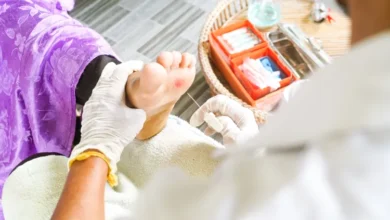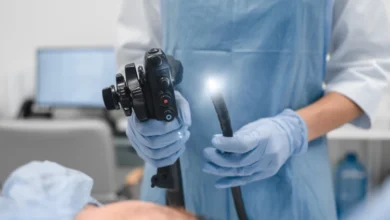Major Study Reveals Genetic Roots of Chronic Fatigue Syndrome
Findings Offer the Strongest Biological Evidence Yet That ME/CFS is Rooted in Genetics, Not Psychology

For decades, myalgic encephalomyelitis, also known as chronic fatigue syndrome (ME/CFS), has been one of medicine’s most perplexing conditions. It affects an estimated 67 million people worldwide, yet its causes have remained elusive, and patients often face stigma alongside their debilitating symptoms.
The illness is defined by an overwhelming and unrelenting fatigue that does not improve with rest, often coupled with pain, cognitive difficulties, and post-exertional malaise—a sudden worsening of symptoms after even small amounts of physical or mental activity. Despite its impact, there has been no diagnostic test, no clear biological explanation, and no proven cure.
Now, a major genetic study is beginning to change that narrative. The DecodeME project, launched in 2022 and led by scientists at the University of Edinburgh with support from patient advocacy groups, has provided the strongest evidence yet that biology—rather than behavior or psychology—plays a central role in ME/CFS.
Eight Genetic Signals—What They Reveal

Researchers examined DNA samples from more than 15,000 people with the illness and compared them to over 250,000 individuals without it. What they found was striking: eight regions of DNA where genetic differences were far more common among patients than in the general population.
These differences, often referred to as “genetic signals,” appear to cluster around two key biological systems—the immune system and the nervous system. Some of the genes identified are known to influence how the body responds to infection, a finding that echoes the experiences of many patients who report that their illness began after a viral or bacterial illness.
Others are linked to pathways involved in pain regulation, which may help explain why chronic pain is such a common feature of the condition.
Importantly, the study also showed that these genetic differences are not associated with psychiatric conditions such as depression or anxiety, helping to counter the long-standing misconception that ME/CFS is primarily psychological in nature.
Implications
The implications of these findings are significant, though researchers caution that they are only the beginning. The genetic associations discovered by DecodeME cannot yet be used to diagnose the illness, nor do they immediately translate into treatment.
What they do provide, however, is a roadmap for future research—clues that point scientists toward the biological processes most likely driving ME/CFS. By focusing on immune and neurological pathways, researchers may be able to develop targeted studies and, eventually, new therapies that address the underlying mechanisms rather than just the symptoms.
For patients, the study represents more than just scientific progress—it is also a moment of validation. ME/CFS has historically been misunderstood, with many sufferers facing disbelief from clinicians, employers, and even friends or family. The discovery that the illness is written, at least in part, into the genome underscores that it is not imagined, but rooted in biology. As Professor Chris Ponting, who leads the DecodeME study, has noted, these results mark a turning point in how the illness is perceived within the medical and research communities.
Future Directions
The DecodeME team is continuing its work, expanding the study to include participants from more diverse backgrounds and conducting deeper analyses of genetic variation. They have also made their dataset available to scientists around the world in the hope that collaboration will accelerate discoveries.
While it may take years to translate these findings into practical treatments, the momentum is now firmly on the side of progress. For a patient community that has long waited for recognition and solutions, this study offers both a clearer biological foundation and a renewed sense of hope.
[Source]








